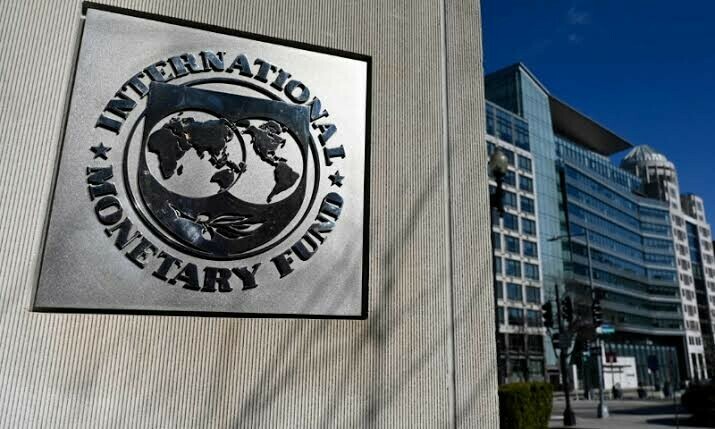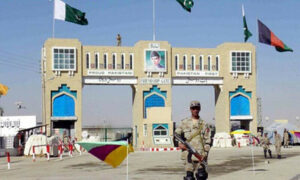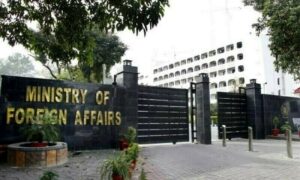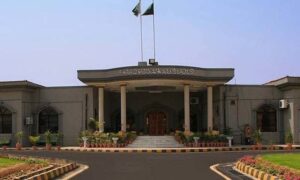• Says Pakistan’s growth hindered by favouritism to these two segments
• Identifies textile sector as having highest tax gap relative to its value added
• Recommends simplifying trade policies, avoiding tariffs aimed at industrial protection
ISLAMABAD: The International Monetary Fund (IMF) has asked Pakistan to swiftly end preferential treatment, tax exemptions and other protections for the agriculture and textile sectors, which it says have stifled the country’s growth potential for decades.
In its staff report on the diagnosis of the factors behind Pakistan’s struggling economy, the IMF blamed these two sectors not only for failing to contribute adequately to the national revenue but also for consuming large portions of public funds while remaining inefficient and uncompetitive.
As part of the recently approved $7 billion Extended Fund Facility (EFF), the IMF stressed that Pakistan must break from its economic practices of the past 75 years to escape its recurrent boom-bust cycles. The report highlighted the country’s significant lag behind similar nations, a stagnation that has compromised living standards and pushed over 40.5 per cent of the population below the poverty line.
It said Pakistan had struggled to develop more sophisticated export goods, and the share of knowledge-intensive exports remains low as it failed to innovate. As of 2022, Pakistan ranked 85th in the Economic Complexity Index, the same rank it held in 2000.
“With an export basket strongly biased towards agriculture and textiles (cotton yarn, rice, woven fabrics, beef, leather apparel), the country has struggled to reallocate resources towards more technologically complex products,” it said.
The current focus on agriculture has limited Pakistan’s ability to diversify into more technologically complex goods. While Pakistan does export some high-value products, such as medicines, medical instruments and plastic products, these sectors operate in a heavily distorted economic environment. The report highlighted tariffs on intermediate and final goods as barriers to competitiveness and domestic market growth, inhibiting the country’s transition towards more advanced manufacturing.
“Reallocation, however, is held back by existing microeconomic distortions, including public procurement of agricultural goods, price controls on raw inputs, and fiscal and financial incentives for low productivity sectors,” it observed.
The report identified the textile sector as having the highest tax gap relative to its value added, noting that between 2007 and 2022, the sector benefited from subsidies, favourable pricing on inputs, concessional financing schemes and preferential tax treatment. As of May 2024, 70pc of the outstanding concessional central bank loans were tied to the textile sector.
The IMF recommended that the government focus on simplifying trade policies under the upcoming National Tariff Policy (2025-29). It urged Pakistan to avoid using tariffs to promote industrialisation or protect inefficient sectors, arguing that such policies weaken exports, hinder participation in global value chains, and incentivise rent-seeking.
The report also warned that “trade policies aimed at promoting specific domestic sectors, including export subsidies and local content requirements, should be discontinued as they are likely to promote resource misallocation and may violate international obligations”.
Compared to other regional peers, Pakistan’s export growth has been weak, with sales to the world particularly stagnant during the 2010s. Its many trade restrictions, including exchange measures, restrictions to payments, as well as tariff and non-tariff barriers to imports, have consistently placed Pakistan around the 90th percentile of the Measurement of Aggregate Trade Restrictions index. Greater integration to world trade and fundamentals-driven competitiveness gains would help spur Pakistan’s economic development, the IMF advocated.
The report noted that persistent policy-induced resource misallocation and their retention in low productivity activities not only hampered the incentive to invest, innovate and enhance total factor productivity but also a major source of the decline in Pakistan’s living standards and competitiveness. The Fund called for removing these distortions so that the country could develop a stronger, more competitive and technologically advanced economy.
It said several complex goods were within likely technological proximity to Pakistan’s current export basket, including glassware, paints, chemicals, fabrics for industrial use, paper, cosmetics and rubber products.
However, to facilitate the development of such new industries, the country needed a level playing field for business, avoiding targeted policies aimed at picking winners.
This includes greater integration into global trade and easier access to imports, both as intermediate inputs for production and as final goods to promote domestic competition. The removal of fiscal incentives would reduce the existing misallocation of resources and promote price discovery across firms.
In addition, the agriculture sector in Pakistan provided an extreme example of government policies hindering transformation by trapping resources in low-productivity activities. The agriculture sector suffered from one of the lowest levels of labour productivity and had shown both the smallest reallocation relative to peers and the smallest improvement in labour productivity.
The IMF said that large-scale government interventions, such as support prices and preferential tax treatments, have locked resources into agriculture at the expense of more productive sectors.
Published in Dawn, October 14th, 2024







